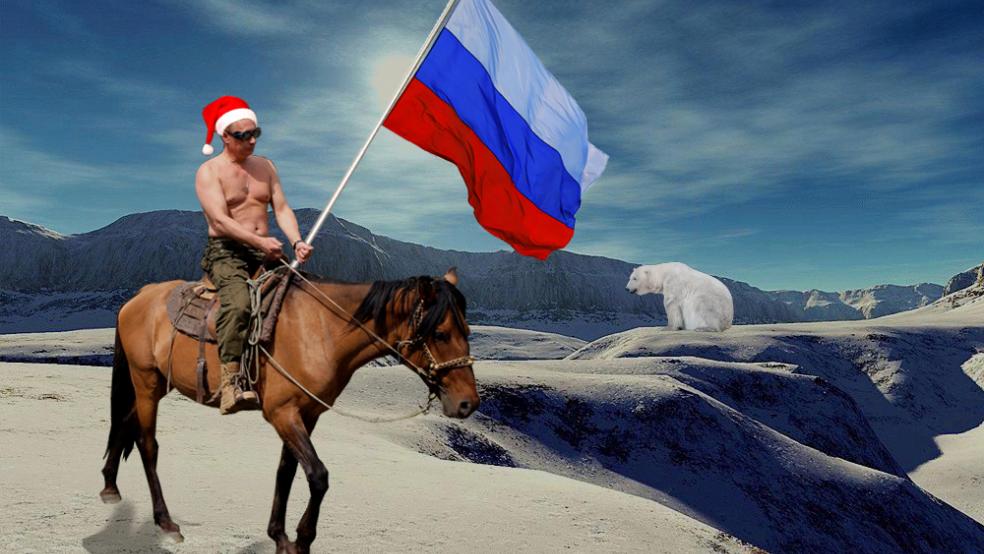When it comes to expanding his country’s geographic boundaries, Russian President Vladimir Putin has more tricks up his sleeve than just invading his neighbors and illegally annexing their territory. In a submission to the United Nations, the Russian Federation is now claiming that it has the right to exert economic control over nearly half a million square miles of the Arctic Ocean, including the North Pole.
The approximately 460,000 square miles that Russia is claiming contains some of the world’s largest untapped reserves of fossil fuels, as well as valuable minerals. It also contains a potentially important northern shipping route that has been slowly opening up as Arctic Ice melts due to global climate change.
Related: Vladimir Putin’s Spokesman Wears a Golden Skull Watch Worth $620K
Russia is making its claim under the 1982 U.N. Convention on the Law of the Sea, which dictates just how far from its recognized borders a country is entitled to an exclusive economic zone. The convention allows for a 200-mile zone from recognized borders, except where a country can demonstrate that the continental shelf on which it sits actually extends farther then 200 miles. In such cases, the law recognizes a 350-mile limit.
However, Russia is claiming considerably more than that, on the grounds that the resources under the Arctic Ocean are “natural components” of the territory it already controls.
This isn’t the first time Russia has tried to stake a claim to the Arctic and the natural resources that lie beneath it. In 2002, Putin submitted a similar claim to the U.N., which was rejected because it failed to provide sufficient scientific evidence to back Moscow’s claims.
In its most recent submission, the Kremlin says it has now submitted “ample scientific data” to support its claim. It even went so far as to send a mini-submarine under the Arctic Circle, where it planted a titanium Russian flag at the North Pole.
Related: Putin’s Next Invasion – The Pop Charts
A ruling from the United Nations likely won’t come for some time. The U.N. committee responsible for adjudicating claims like this may not meet again until 2016. It will also be contested by various countries that also have borders touching the Arctic, including the U.S., Canada and others.
If Polar Bears start reporting sighting of “little green men” in the interim, it may be a sign that the Kremlin is tired of waiting for the U.N.’s blessing.





